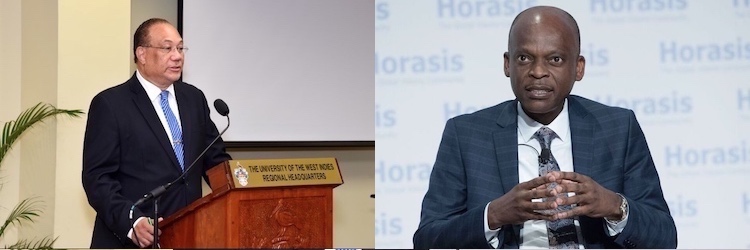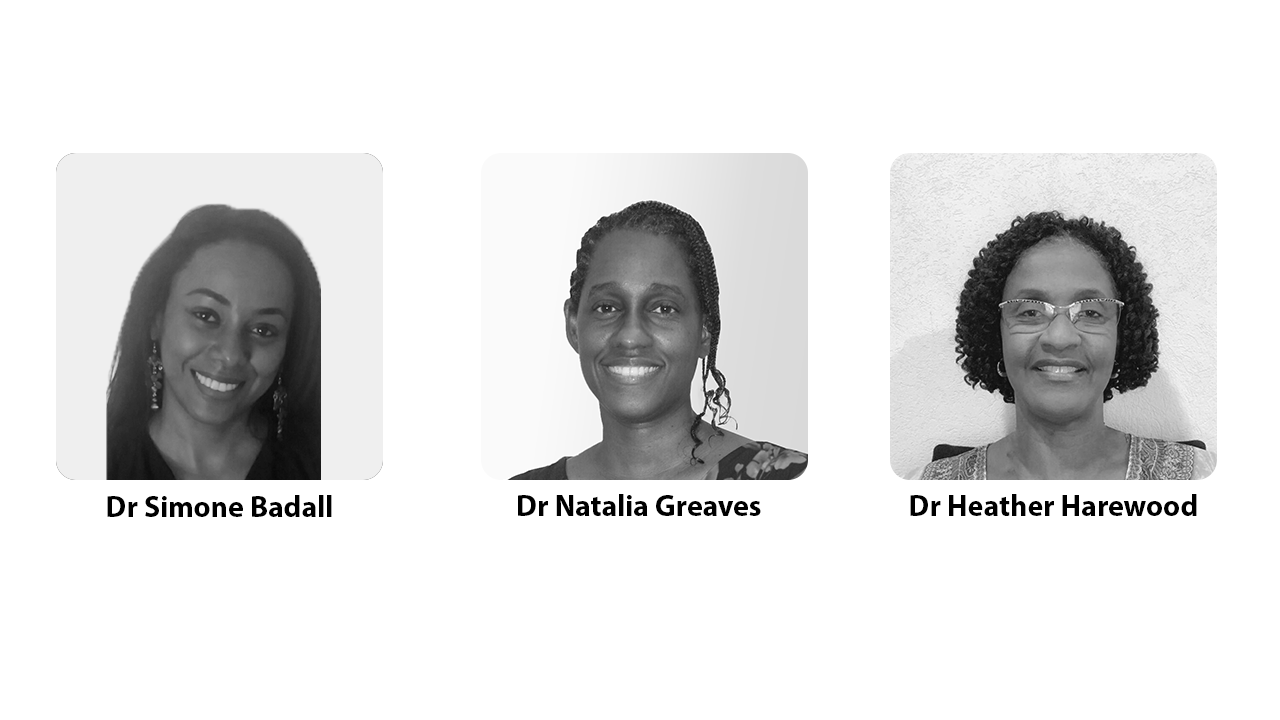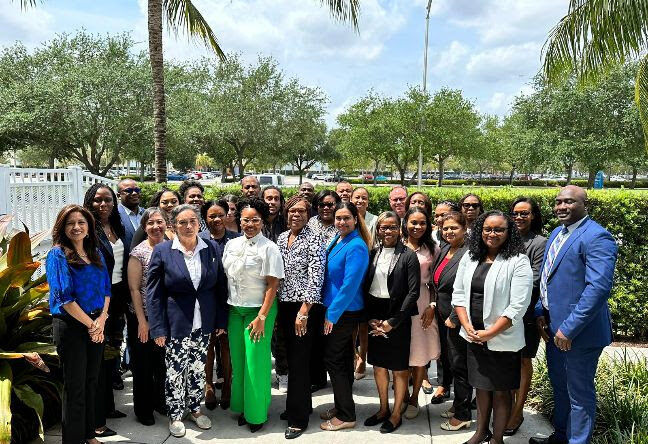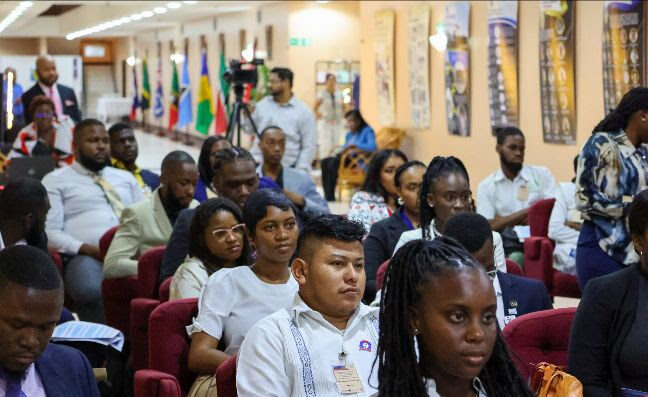By Desmond Brown
This report is part of a series focusing on the European Union and the African, Caribbean and Pacific (ACP) Group of States working to “modernize” their relations, and in the process giving the ACP Group “a greater presence” at the United Nations. – The Editor.
KINGSTON, Jamaica (IDN) – In the face of a rapidly changing global environment, a top Caribbean diplomat and technocrat strongly suggests the establishment of an independent research institute to supplement and support governments and the Caribbean Community (CARICOM) secretariat.
Pro-Vice Chancellor, Global Affairs at the University of the West Indies (The UWI), Ambassador Richard Bernal said the research facility would serve to strengthen negotiations for the replacement of theCotonou Agreement which expires in 2020. It would assist groups such as the African, Caribbean and Pacific States (ACP), the European Union (EU), and CARICOM.
“This would be an institute for the study of relations between the EU and the Caribbean and could be based here at The UWI and with a counterpart European university,” Bernal told IDN.
“The idea would be to have an ongoing independent research capacity to support the [post-Cotonou] negotiations. But even after the negotiations are finished, EU-Caribbean relationship is important and so multi-dimensional that it is going to require constant review, analysis and new initiatives to deal with new problems and reinvigorate the relationship.”
ACP Group a valuable group
Meanwhile, the former Jamaica ambassador to the United State and long-time trade negotiator for the Caribbean said the ACP is still valuable as a lobbying group and their strength in numbers should not be overlooked.
Unity within the ACP is particularly important for the Caribbean and the Pacific, Bernal said, given that Europe is paying more attention to Africa, which offers larger opportunities in trade and investment than the small economies of the Caribbean and the Pacific.
“We here in the Caribbean probably need to hold on to the ACP Group more than the Africans need to hold on to it,” Bernal noted.
Bernal pointed out that the differences in interest between the ACP countries have widened over the years, adding that this has been exacerbated by the fact that the Cotonou Agreement set up six regional Economic Partnership Agreements instead of a single EU-ACP agreement.
He said this means that ACP countries were no longer negotiating as an ACP bloc but as sub-regions.
“So that further widened the differences within the ACP group,” Bernal said. “However, in the negotiations to replace the umbrella Cotonou Agreement with an EU-ACP agreement, they are called upon to work together.”
But The UWI Pro-Vice Chancellor said the ACP still has a secretariat, and they’re still working together, particularly on the replacement of the Cotonou Agreement.
Making the ACP an influential player
Professor Robert Dussey is the Chief Negotiator ACP-EU Post-Cotonou 2020. He said the best ways to adapt in a rapidly changing global environment is to move in the direction of change.
He explains, this is why, for some time now, there has been a dynamic of self-transformation and self-reinvention that has started within the ACP Group.
“The goal is to reposition the ACP on the world stage by taking into account the changes in the world, be they economic, climate, computer or geopolitical changes,” Dussey told IDN.
“The ACP now has 79 States. On the international stage, we will be able to take advantage of our numerical strength. The ambition to make the ACP Group an influential player in global, economic and political governance is one of the challenges of the ongoing negotiations. The ACP-EU partnership alone brings together over half of the world’s countries. Both parties are able to influence decisions on the international scene.”
Dussey, a professor of political philosophy, said the ACP should maximize on its potential as a group of diverse economies.
“Diversity is an opportunity, not an obstacle. Now is the time for regional and transcontinental groupings. In any case, globalization forces us to do it. Since its creation, the ACP Group has managed to reconcile the logic of diversity with that of unity. Diversity is the reality of the ACP, but unity and solidarity remain its founding principles,” he said.
“The three regional protocols foreseen in the future cooperation agreement are based on the specific priorities and needs of the regions. Better, regions are empowered in the negotiation of regional protocols and they will be able to align their specific strategic priorities with the spirit and direction of the negotiations. We do not gain anything by dispersing ourselves. The cohesion of the ACP Group is the strength of each of its regions. By staying together, we can better cope with the development imperatives of the ACP peoples.”
ACP-EU partnership will survive Brexit
The ACP Group is following with interest, Brexit and its many twists and turns. But Dussey is confident the ACP-EU partnership will survive Brexit, regardless of its outcome.
He said challenge today is to reach a fair and equitable agreement with the EU with the right and legitimate aspirations of the ACP populations, countries and regions for development.
“In the ongoing negotiations, the strategic and specific priorities of the regions are taken into account. This is why the ACP Group has positioned the regions on the regional protocols,” Dussey said.
“The Caribbean region, like other regions, namely Africa and the Pacific, now has in hand the negotiation of the EU-Caribbean pillar of the future cooperation agreement. By positioning the region, we are confident that it will be able to align the EU-Caribbean pillar of the agreement with the Caribbean community’s development-related ambitions.”
Drawing on their experience, the Caribbean will be able to negotiate with the EU a regional protocol designed, in the future, to hasten their steps towards development, Dussey said.
“Hope is allowed and I want to remain optimistic. At the EU-Caribbean Regional Consultations held in Kingston, Jamaica on the 15th of April, I was convinced that the stakeholders in the region are aware of their responsibility,” he said.
“The ACP countries, in this 21st century, need more equity in their partnerships with other continental countries or groups and more foreign investment, especially European investments. Ideally, either within the EU or alone, the United Kingdom should continue to have relations with the ACP countries, and therefore with the three constituent regions of the ACP, including the Caribbean,” Dussey added. [IDN-InDepthNews – 11 May 2019]
Collage: Ambassador Richard Bernal, Pro-Vice Chancellor, Global Affairs at The UWI (left) and Professor Robert Dussey, the Chief Negotiator ACP-EU Post-Cotonou 2020 by IDN-INPS with photos from public domains.
This report is part of a joint project of the Secretariat of the ACP Group of States and IDN, flagship agency of the International Press Syndicate.




